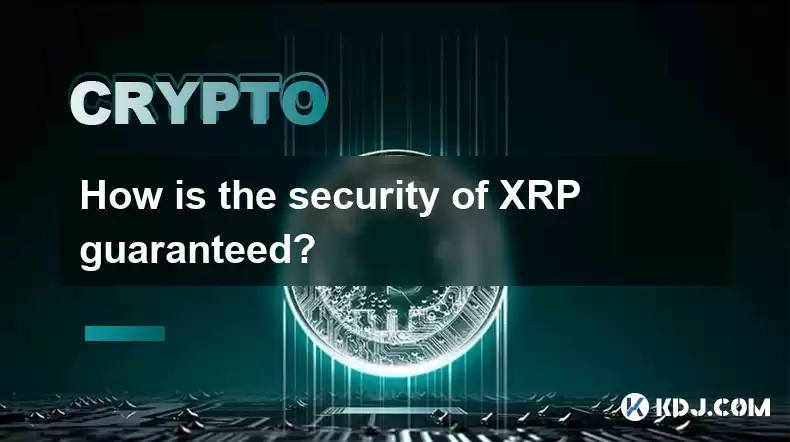-
 Bitcoin
Bitcoin $119700
0.53% -
 Ethereum
Ethereum $4508
5.39% -
 XRP
XRP $3.270
2.86% -
 Tether USDt
Tether USDt $1.000
0.00% -
 BNB
BNB $831.0
2.92% -
 Solana
Solana $189.6
6.89% -
 USDC
USDC $0.9999
-0.01% -
 Dogecoin
Dogecoin $0.2350
2.92% -
 TRON
TRON $0.3500
1.34% -
 Cardano
Cardano $0.8420
6.73% -
 Chainlink
Chainlink $23.26
8.42% -
 Hyperliquid
Hyperliquid $44.42
1.44% -
 Stellar
Stellar $0.4512
3.16% -
 Sui
Sui $3.895
5.15% -
 Bitcoin Cash
Bitcoin Cash $618.7
5.88% -
 Hedera
Hedera $0.2601
4.43% -
 Ethena USDe
Ethena USDe $1.001
0.01% -
 Avalanche
Avalanche $24.45
4.90% -
 Litecoin
Litecoin $128.1
5.41% -
 Toncoin
Toncoin $3.454
1.64% -
 UNUS SED LEO
UNUS SED LEO $9.065
0.44% -
 Shiba Inu
Shiba Inu $0.00001359
3.41% -
 Uniswap
Uniswap $11.42
1.78% -
 Polkadot
Polkadot $4.165
6.36% -
 Cronos
Cronos $0.1664
-0.50% -
 Ethena
Ethena $0.8108
1.79% -
 Dai
Dai $1.000
0.00% -
 Pepe
Pepe $0.00001213
5.22% -
 Bitget Token
Bitget Token $4.438
0.25% -
 Aave
Aave $313.3
5.02%
How is the security of XRP guaranteed?
XRP's security stems from Ripple's consensus ledger, regular audits, and updates, but user practices with secure wallets are crucial. While robust, it's not invulnerable to all threats.
Mar 09, 2025 at 09:54 am

Key Points:
XRP's security relies on a combination of technological features and the Ripple network's operational practices.
The consensus mechanism, used by the Ripple network, plays a crucial role in transaction validation and security.
Ripple's commitment to security audits and regular updates contributes to the overall robustness of the system.
Individual users can enhance their XRP security through secure wallet practices and awareness of potential threats.
While XRP's security is robust, it's not entirely impervious to vulnerabilities.
How is the Security of XRP Guaranteed?
XRP's security isn't guaranteed in an absolute sense, like a mathematical certainty. Instead, it's a result of layered security measures implemented by Ripple and practiced by users. Understanding these layers is crucial to assessing the overall security of the XRP ecosystem.
The Role of the Ripple Consensus Ledger (RCL)
At the heart of XRP's security lies the Ripple Consensus Ledger (RCL), a distributed ledger technology (DLT) different from blockchain's proof-of-work or proof-of-stake mechanisms. The RCL uses a unique consensus algorithm to validate transactions. This algorithm aims to prevent double-spending and ensures the integrity of the ledger. The decentralized nature of the RCL makes it more resistant to single points of failure compared to centralized systems.
Understanding the Consensus Mechanism
The RCL's consensus mechanism is designed to reach agreement on the validity of transactions quickly and efficiently. It involves a network of validators who verify transactions and add them to the ledger. This process aims to prevent fraudulent transactions from being added to the ledger, contributing to the overall security of XRP. The specifics of the algorithm are complex but ultimately aim for fast, secure transaction processing.
Security Audits and Updates
Ripple regularly undergoes independent security audits to identify and address potential vulnerabilities in its systems. These audits are a crucial part of maintaining the security of the XRP ledger and the overall ecosystem. Furthermore, Ripple continuously releases updates and patches to address any identified weaknesses, enhancing the platform's security over time. Transparency in reporting security issues is also a key component of their approach.
The Importance of Secure Wallets
While Ripple focuses on the network's security, individual users play a critical role in protecting their XRP. Choosing a reputable and secure wallet is paramount. Hardware wallets, offering offline storage, are generally considered the most secure option. Software wallets should be chosen carefully, prioritizing those with a strong reputation and a history of security updates.
Best Practices for Secure XRP Storage
Use strong, unique passwords: Avoid easily guessable passwords and use different passwords for each account.
Enable two-factor authentication (2FA): This adds an extra layer of security, making it much harder for unauthorized individuals to access your account.
Regularly update your wallet software: Updates often include security patches that address newly discovered vulnerabilities.
Be wary of phishing scams: Be cautious of emails or websites that ask for your private keys or seed phrases.
Keep your software up-to-date: Regularly check for updates to your operating system and applications to mitigate known vulnerabilities.
Store your seed phrase securely: This phrase is crucial for recovering your wallet if you lose access. Store it offline, in a safe place, and never share it with anyone.
Addressing Potential Vulnerabilities
Despite the security measures in place, no system is completely immune to vulnerabilities. The decentralized nature of the RCL mitigates some risks, but it's not entirely foolproof. Software bugs, unforeseen vulnerabilities, and human error can still pose potential risks. Staying informed about potential threats and following best security practices is vital for all XRP users. The ongoing efforts by Ripple and the community to address vulnerabilities are vital to maintaining the long-term security of the XRP ecosystem.
The Role of Community Scrutiny
The XRP community plays a role in identifying and reporting potential security concerns. Open-source components of the Ripple system allow for community scrutiny and independent analysis. This decentralized review enhances the overall security of the system by leveraging the collective expertise of the community. This collaborative approach to security adds another layer of protection beyond Ripple's internal efforts.
Regulatory Compliance and Security
Ripple's commitment to regulatory compliance also indirectly contributes to the security of XRP. By adhering to regulations, Ripple aims to maintain a transparent and accountable system, reducing the potential for illicit activities that could compromise the network's security. This regulatory framework, while not directly a security measure, creates an environment less hospitable to malicious actors.
Continuous Improvement and Evolution
The security of XRP is not a static concept; it's constantly evolving. As technology advances and new threats emerge, Ripple continues to refine its security measures and adapt to the changing landscape. The ongoing development and improvement of the RCL and associated security protocols are vital for maintaining the long-term security of the XRP ecosystem. Staying informed about these developments is crucial for users.
Frequently Asked Questions:
Q: Is XRP as secure as Bitcoin?
A: Both XRP and Bitcoin utilize different security models. Bitcoin relies on proof-of-work, while XRP uses the Ripple Consensus Ledger. The relative security of each depends on the specific strengths and weaknesses of their respective mechanisms and is a subject of ongoing debate within the cryptocurrency community. Both have demonstrated resilience over time but present different vulnerabilities.
Q: Can XRP be hacked?
A: While the Ripple network is designed to be secure, vulnerabilities exist, and hacks are theoretically possible. However, the likelihood of a successful large-scale hack is reduced by the distributed nature of the RCL and the security measures implemented by Ripple. The focus is on minimizing vulnerabilities and mitigating risks.
Q: What happens if my XRP wallet is compromised?
A: If your XRP wallet is compromised, you may lose access to your funds. The severity depends on the type of wallet used and the level of security implemented. Having a backup of your seed phrase is crucial for recovery in such situations. Immediately report any suspicious activity and take steps to secure your account.
Disclaimer:info@kdj.com
The information provided is not trading advice. kdj.com does not assume any responsibility for any investments made based on the information provided in this article. Cryptocurrencies are highly volatile and it is highly recommended that you invest with caution after thorough research!
If you believe that the content used on this website infringes your copyright, please contact us immediately (info@kdj.com) and we will delete it promptly.
- Unich's OTC Exchange: Surging with $1.2B Volume – What's the Hype?
- 2025-08-13 02:50:11
- MoonBull's Explosive Moves: Your Crypto Whitelist Ticket to Ride!
- 2025-08-13 02:30:11
- MAGACOIN Finance: Don't Miss the Presale Bonus!
- 2025-08-13 02:30:11
- Trump's Crypto Kingdom: $2.4 Billion and Counting
- 2025-08-13 02:50:11
- Solana, LSTs, and SEC Approval: A New Dawn for Crypto?
- 2025-08-13 02:55:12
- Bitcoin's Profit Surge: Unpacking the BTC Value Boom
- 2025-08-13 02:55:12
Related knowledge

How to purchase Aragon (ANT)?
Aug 09,2025 at 11:56pm
Understanding Aragon (ANT) and Its PurposeAragon (ANT) is a decentralized governance token that powers the Aragon Network, a platform built on the Eth...

Where to trade Band Protocol (BAND)?
Aug 10,2025 at 11:36pm
Understanding the Role of Private Keys in Cryptocurrency WalletsIn the world of cryptocurrency, a private key is one of the most critical components o...

What is the most secure way to buy Ocean Protocol (OCEAN)?
Aug 10,2025 at 01:01pm
Understanding Ocean Protocol (OCEAN) and Its EcosystemOcean Protocol (OCEAN) is a decentralized data exchange platform built on blockchain technology,...

How to invest in Kyber Network Crystal v2 (KNC)?
Aug 12,2025 at 05:21pm
Understanding Kyber Network Crystal v2 (KNC)Kyber Network is a decentralized liquidity hub built on the Ethereum blockchain that enables instant token...

Where can I buy UMA (UMA)?
Aug 07,2025 at 06:42pm
Understanding UMA and Its Role in Decentralized FinanceUMA (Universal Market Access) is an Ethereum-based decentralized finance (DeFi) protocol design...

What exchanges offer Gnosis (GNO)?
Aug 12,2025 at 12:42pm
Overview of Gnosis (GNO) and Its Role in the Crypto EcosystemGnosis (GNO) is a decentralized prediction market platform built on the Ethereum blockcha...

How to purchase Aragon (ANT)?
Aug 09,2025 at 11:56pm
Understanding Aragon (ANT) and Its PurposeAragon (ANT) is a decentralized governance token that powers the Aragon Network, a platform built on the Eth...

Where to trade Band Protocol (BAND)?
Aug 10,2025 at 11:36pm
Understanding the Role of Private Keys in Cryptocurrency WalletsIn the world of cryptocurrency, a private key is one of the most critical components o...

What is the most secure way to buy Ocean Protocol (OCEAN)?
Aug 10,2025 at 01:01pm
Understanding Ocean Protocol (OCEAN) and Its EcosystemOcean Protocol (OCEAN) is a decentralized data exchange platform built on blockchain technology,...

How to invest in Kyber Network Crystal v2 (KNC)?
Aug 12,2025 at 05:21pm
Understanding Kyber Network Crystal v2 (KNC)Kyber Network is a decentralized liquidity hub built on the Ethereum blockchain that enables instant token...

Where can I buy UMA (UMA)?
Aug 07,2025 at 06:42pm
Understanding UMA and Its Role in Decentralized FinanceUMA (Universal Market Access) is an Ethereum-based decentralized finance (DeFi) protocol design...

What exchanges offer Gnosis (GNO)?
Aug 12,2025 at 12:42pm
Overview of Gnosis (GNO) and Its Role in the Crypto EcosystemGnosis (GNO) is a decentralized prediction market platform built on the Ethereum blockcha...
See all articles

























































































